New England’s oldest hospitals are all younger than such venerable institutions as schools, banks, businesses and taverns.
Religious orders had run hospitals for centuries to care for the poor, not just the sick. They evolved during the 18th century into places for the practice and teaching of medicine by trained professionals. Nurses, like Louisa May Alcott, for a long time had little or no formal training.
Over time, hospitals became centers of medical innovation and research. They developed specialties and affiliated with medical schools. During the 19th century, lunatic asylums sprang up to take care of mentally ill people outside the family.
After the Civil War, the number of hospitals grew rapidly in the United States, to 4,400 by 1910. They got larger, cleaner and more professional.
New England’s oldest hospitals reflect that evolution. One early hospital gave wine to poor people. One took in the insane. A woman who also wrote hymns started one. And one of the oldest hospitals has a unit named after a woman who gave birth to a president in another of the oldest hospitals.
Here, then, are six of the oldest hospitals in New England, one in each state.
State Hospital, New Haven
The old State Hospital is Connecticut’s first and boasts many other firsts. It published the first nursing textbook in 1879, produced the first x-ray in the United States in 1896 and used chemotherapy as a cancer treatment for the first time ever in 1942. It also, for the first time in the U.S., allowed healthy newborns to stay in their mothers’ rooms in 1946. Barbara Bush, by the way, gave birth there to future U.S. President George W. Bush that year. In 1975, Lyme disease was identified and named at Yale-New Haven Hospital.
Now called Yale-New Haven Hospital, it was founded in 1826 by the General Hospital Society of Connecticut. It opened in rented quarters, but founders raised enough money by 1833 to build the 13-bed State Hospital designed by Ithiel Town. East and west wings were added.
During the Civil War, the U.S. government leased the building for use as a military hospital. Fifteen hundred beds were set up in the building and in tents on the grounds to treat 25,000 U.S. Army soldiers during the war. Yale-New Haven Hospital has been designated a military hospital in every subsequent war.
The Yale-New Haven Hospital is not only one of the oldest hospitals in the country, it is one of the biggest. Today it has a 1,541-bed hospital, the 168-bed Smilow Cancer Hospital, the 201-bed Yale New Haven Children’s Hospital and the 76-bed Yale New Haven Psychiatric Hospital. It also serves as the teaching hospital for Yale School of Medicine and Yale School of Nursing.
Maine General Hospital
Maine Medical Center in Portland is now the largest hospital in Northern New England. It has 637 beds serving Maine, parts of Vermont and New Hampshire. It was founded as the Maine General Hospital through the efforts of the Maine Medical Society and the state Legislature. Now it serves as a teaching hospital affiliated with four university medical schools.
Doctors founded the Maine Medical Association 20 years earlier to quash the practice of homeopathic and alternative medicines. The group also had concerns about the lack of a general hospital in Maine. The Legislature granted land and funds for the institution, which opened its doors in 1874.
Maine’s doctors had lobbied for the Maine General Hospital. A Maine Medical Association founder, Dr. Gilman Davies, pronounced, ‘the Maine General Hospital is the child of the Maine Medical Association.’
Like the Yale-New Haven Hospital, the Maine Medical Center has a connection to the Bush family: the Barbara Bush Children’s Hospital. Once the teaching hospital for Bowdoin College, it now has affiliations with Dartmouth, St. Joseph’s, Tufts and the University of Southern Maine medical schools.
The Boston Dispensary
One of the five oldest hospitals in the country, the Boston Dispensary was founded in 1796, 60 years after the start of Bellevue Hospital in New York and Charity Hospital in New Orleans.
The Dispensary was New England’s first hospital, and it took care of poor people. It was founded by Boston’s civic leaders, including Paul Revere and Sam Adams. Oliver Wendell Holmes received his medical training there, as did other prominent physicians such as James Jackson and Henry Bowditch.
Doctors took care of patients at the Dispensary in Boston’s South End or in their homes, and gave them medicine and wine, if they felt it necessary. Clinics were established throughout the city, and eventually so was an evening clinic for the working poor, which was partially funded by employers.
Subscribers supported the Dispensary by paying $5 a year for a ticket, which entitled them to recommend two patients to its care. The Massachusetts Historical Society has a ticket signed by Paul Revere.
The Boston Dispensary over the years affiliated with other medical institutions, including Boston’s Floating Hospital for Children, Tufts University’s medical and dental schools and the Pratt Diagnostic Clinic. In 1968 those affiliations became formal in a merger resulting in Tufts New England Medical Center, now Tufts Medical Center.
Portsmouth Cottage Hospital
Portsmouth Cottage Hospital admitted its first patients in 1884, nearly a century after the Dartmouth Hitchcock Medical School opened its doors in 1797.
Harriet Kimball, the daughter of a Portsmouth pharmacist, provided the drive to start Portsmouth Cottage Hospital. She also published poetry and hymns. Kimball founded the hospital as a charity, with some funding from the City of Portsmouth.
The hospital opened in the large house in which a famous writer, Thomas Bailey Aldrich, once lived. That house now belongs to the Strawbery Banke Museum complex.
In 1989, five years after Portsmouth Cottage Hospital opened, fundraising for a proper hospital building began. A 2-1/2 story brick building opened in 1895 and expanded until 1962. That year, the hospital moved to a new building next door.
In 1983, the for-profit hospital chain Health Corporation of America bought it and opened a new campus. HCA renamed it Portsmouth Regional Hospital. HCA since settled fraud charges with the U.S. government totaling $2 billion, then the largest fraud settlement in history.
Concord Hospital, also founded in 1884, still serves as a charitable hospital. It started with a gift of $60,000 from George Pillsbury, father of Pillsbury Co. co-founder Charles Pillsbury. George named it Mary Pillsbury Hospital as a 50th wedding anniversary gift to his wife. It admitted its first patients in 1891.
Butler Hospital, Providence
Rhode Island’s first hospital has the unusual distinction of being a psychiatric hospital. Butler Hospital for the Insane was founded in 1844 with a donation from industrialist Cyrus Butler. It also received financial support from Nicholas Brown, Jr.
The hospital’s first superintendent, Dr. Isaac Ray, toured the asylums of Europe before Butler received its first patients in 1847. Ray reported his findings in Europe in the American Journal of Insanity. People now consider him a founder of forensic psychiatry.
Today, Butler Hospital is affiliated with Brown’s Warren Alpert Medical School. It also serves as the flagship of the university’s acclaimed department of psychiatry.
If you thought Rhode Island’s first general hospital would be a philanthropic project of the Brown family, you would be right. Rhode Island Hospital started with a bequest from Nicholas Brown, Jr.’s nephew, Moses Brown Ives.
The hospital was officially dedicated on Oct. 1, 1868.
Mary Fletcher Hospital, Burlington, Vt.
The first hospital in Vermont opened its doors in 1879 in Burlington, thanks to the generosity of Mary Fletcher.
Mary was born in Jericho, Vt., to Thadeus and Mary Fletcher in 1830. Thadeus was a successful businessman who left a fortune when he died. Young Mary was the last of the family’s five children, and by 1876 she had outlived her siblings and her parents. Though she suffered from tuberculosis, Mary, who was never married, worked to complete the philanthropic dreams of her parents.
Deploying the family’s wealth she established the Fletcher Free Library and the Mary Fletcher Training School for Nurses. Working with her doctor, Walter Carpenter, she spent more than $200,000 buying land and constructing and equipping the Mary Fletcher Hospital, which she named after her mother. She would die in the hospital, in 1885.
The hospital has merged with other institutions over the years, but part of the original hospital is still working today as part of the University of Vermont Medical Center.
This story was updated in 2022.
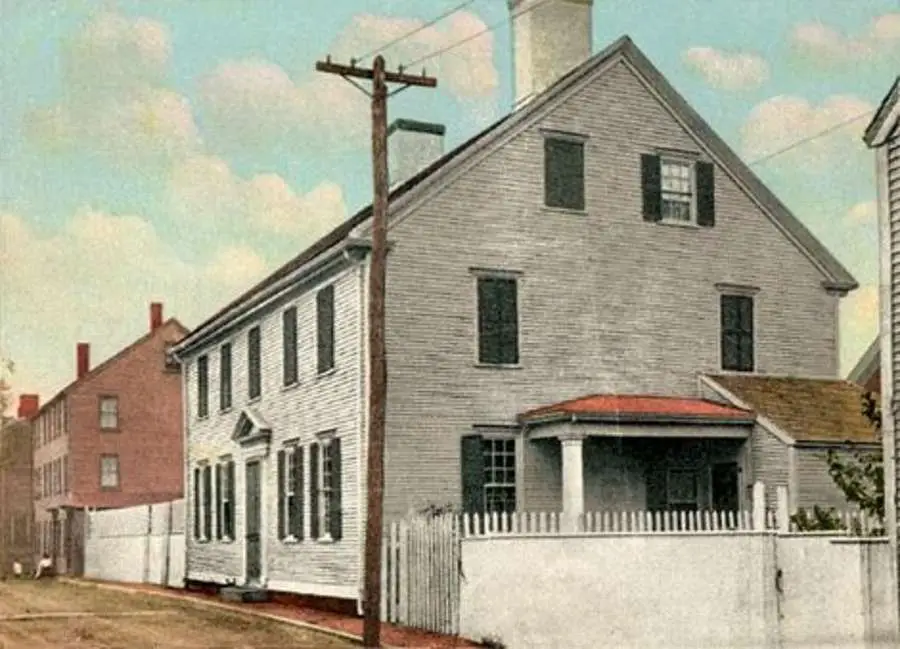
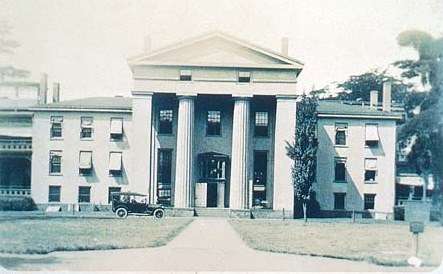
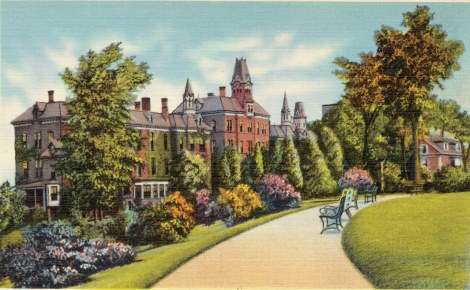

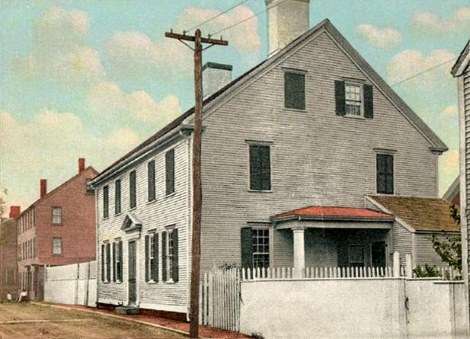

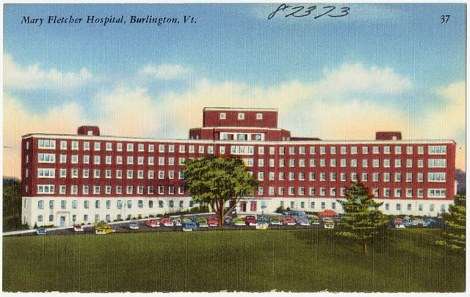
3 comments
A picture of the original Mary Fletcher Hospital in Burlington would have been nice. It still stands today. The picture you showed is how I remember the hospital in the 1960’s – 70’s.
[…] tried to commit suicide with an overdose of morphine, but failed and went to the hospital. Upon her release, she visited an old friend, Sarah Nichols, who lived with her brother in Amherst, […]
[…] passengers to shore. Soon rescue personnel arrived on the scene and took Hogg and Prinster to Rhode Island Hospital. The captain was in critical condition with burns over 50 percent to 70 percent of his body. He […]
Comments are closed.